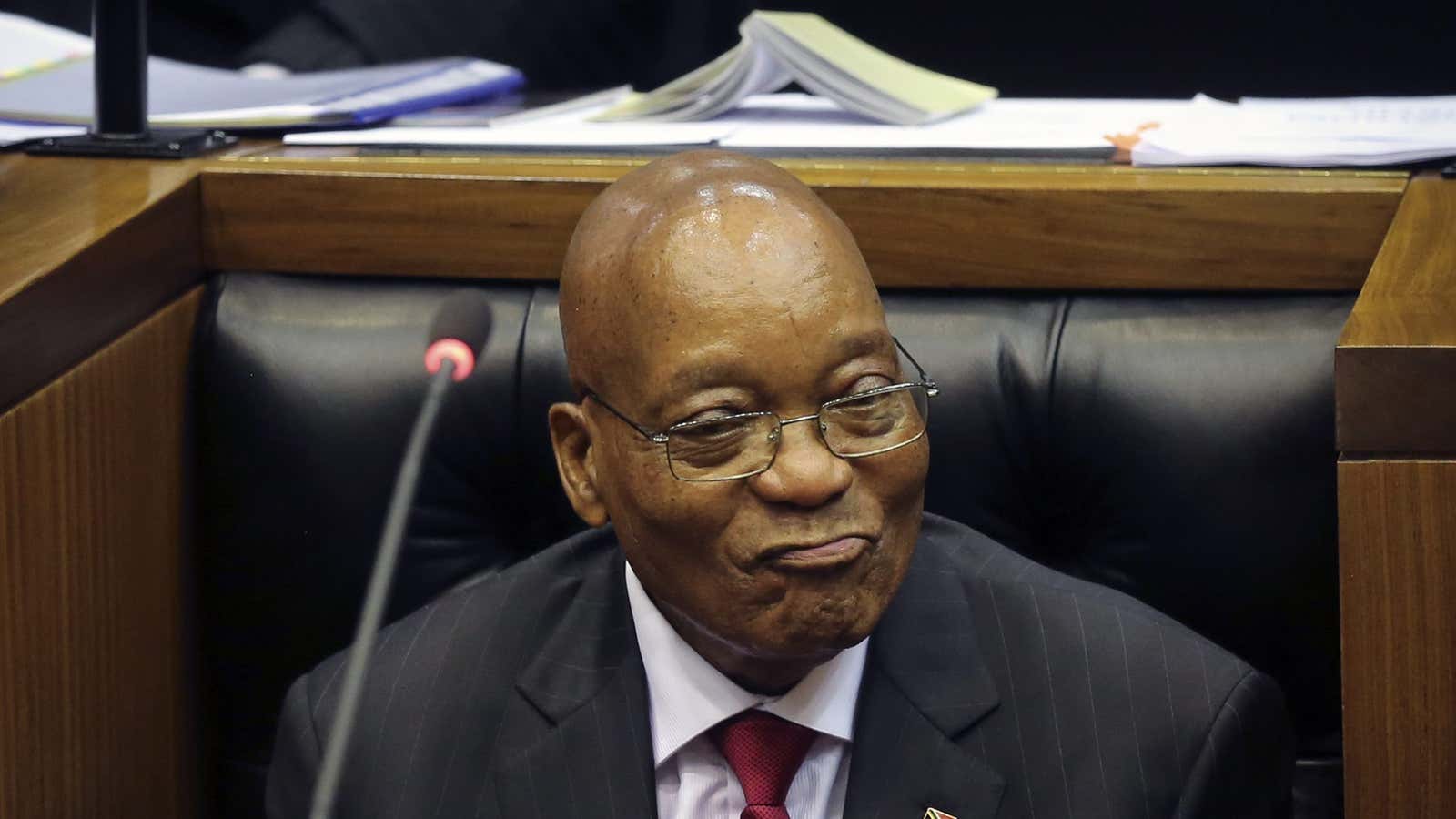South African president Jacob Zuma will face a motion on the vote of no confidence by secret ballot, the speaker of the national assembly has announced.
It’ll be the sixth time the embattled African National Congress (ANC) leader has had to contend with a vote of no confidence. So far he’s survived three failed votes and two unsuccessful motions.
The most recent vote of no confidence was tabled in April this year by the main opposition party, the Democratic Alliance (DA). This was after Zuma’s decision to sack finance minister Pravin Gordhan, triggering the country’s recession and downgrading of national credit ratings to “junk” status.
Last year, the opposition lost a vote of no confidence by 253 votes to 143, after attempting to prove Zuma “violated the constitution” by using state funds to renovate his homestead in Nkandla. The opposition is hoping the secret ballot will afford anonymity to ANC MPs afraid to voice their dissent towards the ruling party out of fear of losing their jobs, or facing intimidation.
Typically secret ballots are used in referendums to protect the identity of citizens. The ANC has maintained its internal processes, which found former president Thabo Mbeki unfit to rule in 2008, should determine whether Zuma should continue as South Africa’s head of state.
For the current motion to succeed, the opposition would need to secure 201 out of 400 votes from MPs. This number would stand even if 200 MPs failed to attend parliament.
If the motion is successful, Zuma along with 72 cabinet ministers would be forced to step down immediately, prompting the speaker to act as interim president for 30 days until the national assembly appoints a new president and cabinet.
In addition, the ANC holds 249 seats in parliament. So far, only two ANC members have outright stated they’d vote with the opposition.
The DA’s chief whip, John Steenhuisen said, in an interview with Bloomberg, that “breakaways, abstentions, and failures to pitch on the day” would make it hard for the opposition to secure enough numbers to remove Zuma from office.
Former president Mbeki, currently in Nairobi as an African Union observer of the ongoing Kenyan elections, told journalists today that the secret ballot was a chance for the MPs to “vote honestly” and “vote with their conscience.”
